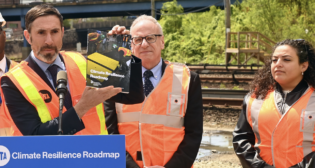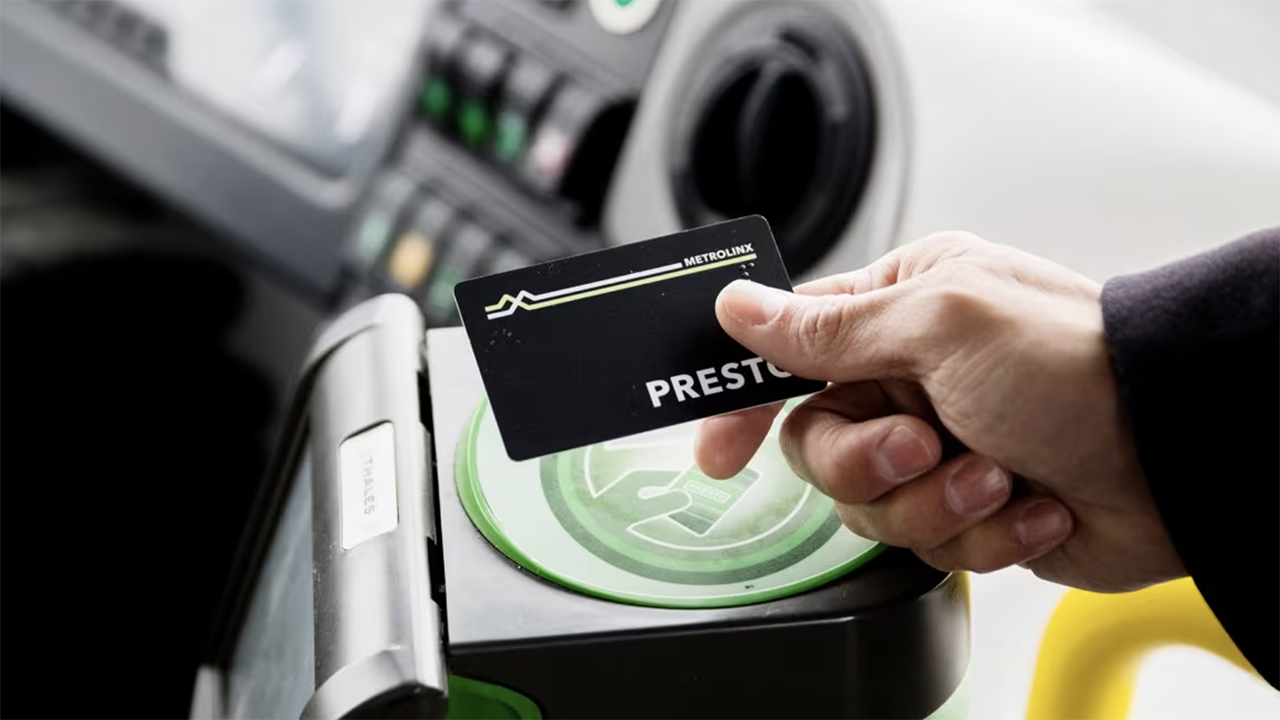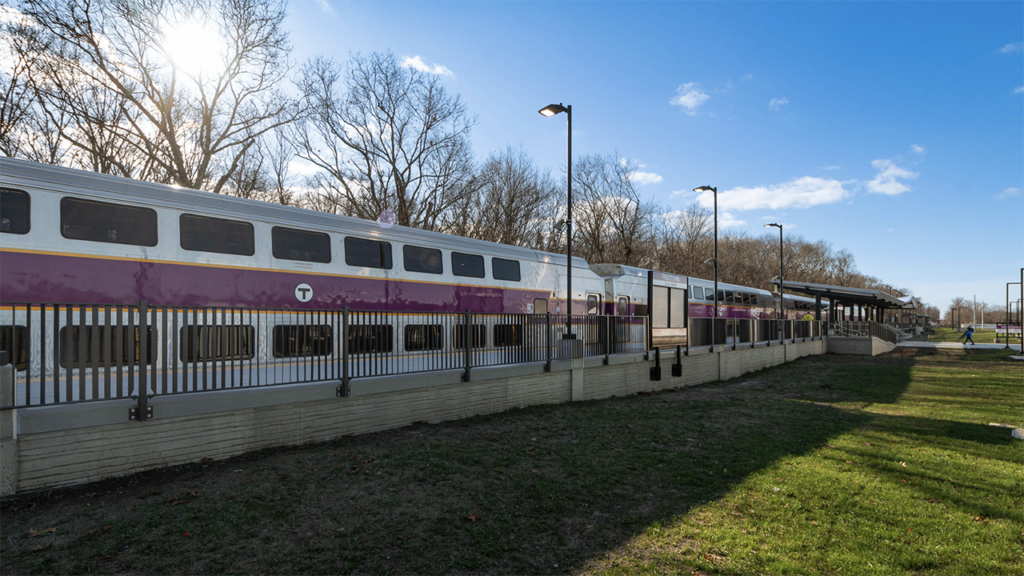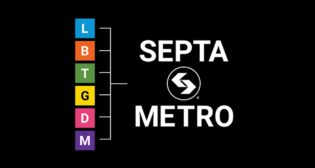
Transit Briefs: TTC, MBTA, TriMet
Written by Marybeth Luczak, Executive Editor
Beginning Feb. 26, TTC will enter Ontario’s One Fare program, which eliminates double fares for riders transferring between transit agencies in the Greater Toronto Area. (Metrolinx Photograph)
Toronto Transit Commission (TTC) joins Ontario’s One Fare Program. Also, Massachusetts Bay Transportation Authority (MBTA) advances South Coast commuter rail project; and Tri-County Metropolitan Transportation District of Oregon (TriMet) begins decommissioning its Type 1 light rail vehicles.
TTC
Beginning Feb. 26, TTC will enter Ontario’s One Fare program, which eliminates double fares for riders transferring between transit agencies in the Greater Toronto Area.
According to TTC, riders using a PRESTO card, PRESTO in Google Wallet, debit card, or credit card will be able to transfer for free between TTC and Brampton Transit, Durham Region Transit, MiWay, and York Region Transit (YRT) within the two-hour free transfer period. TTC customers paying single-ride fares connecting to and from Metrolinx’s GO Transit within a three-hour transfer period will benefit from a fare discount, making their TTC fare free.
This will result in significant savings for riders, TTC said, with adult fare customers transferring between TTC and GO Transit saving C$3.30 on a single trip. Customers using TTC and YRT will save up to C$3.88 on a single adult trip taken between the two agencies within the two-hour free transfer.
Under the One Fare program, the province of Ontario, through Metrolinx, will reimburse 100% of eligible trips to transit agencies for foregone fare box revenue. Eligible trips would include those made within the free transfer period using a PRESTO fare card, PRESTO in Mobile Wallet, debit card, or credit card, according to TTC; it would not apply to riders paying with cash, or with a PRESTO ticket, TTC ticket, or token.
According to Metrolinx, for an adult who commutes five days per week, the program could save them an average of C$1,600 per year.
“The One Fare program is a game-changer for our customers, making transit more affordable and equitable for thousands of people who transfer between transit agencies every day,” TTC Chair Jamaal Myers said. “With One Fare, we are encouraging ridership and helping the environment by giving drivers another reason to leave their cars at home. As the largest transit agency participating in the One Fare program, the TTC plays a critical role in its success.”
“The One Fare program will provide tangible benefits to our customers, making their trips more affordable and convenient,” TTC CEO Rick Leary said. “We are excited to be part of this initiative, which is a key step toward our vision of an affordable, more equitable and accessible public transit system in Toronto and the region.”
MBTA

The Herald News on Feb. 5 provided an update on MBTA’s South Coast Rail service, which is slated to begin connecting Fall River, New Bedford and Taunton with Boston, Mass., this summer.
The project includes six new passenger stations (Middleborough, East Taunton, Freetown, Fall River Depot, Church Street, and New Bedford) and two layover stations (Weaver’s Cove in Fall River and Wamsutta in New Bedford).
Following are among the project’s latest milestones:
- While the Freetown and Fall River Depot stations were completed in 2022, the remainder of the stations are “nearly there,” The Herald News reported. “East Taunton Station is progressing very well and is the most complex station in the program—work at East Taunton is expected to be substantially complete next month,” MBTA Deputy Press Secretary Lisa Battiston told the paper. “In addition, Church Street and New Bedford stations are on schedule for substantial completion by the end of this month.”
- According to Battiston, the “New Bedford pedestrian bridge is nearly 40% complete with east and west abutments in place, work on the elevator tower and stairway in progress, and the installation of bridge support structures beginning next month.”
- MBTA is in a “months-long testing and commissioning phase, which will continue through the spring,” according to The Herald News. MBTA told the paper that it “will be completing full-scale drills, and dress rehearsal train operations, starting now and throughout the year, with trains traveling up to full speed (79 mph).”
TriMet
TriMet on Feb. 5 reported that it has begun decommissioning Type 1 trains to make room for the new Type 6’s from Siemens Mobility at its Ruby Junction Operating Facility. Built by the joint venture of Bombardier Corporation and La Brugeoise et Nivelles, the Type I’s were the first cars to run when TriMet’s MAX light rail service launched in 1986.
The decommissioning process involves mechanics first removing parts from the trains’ HVAC systems, followed by the trucks, gearbox oil, hydraulic fluid, batteries and other components that cannot be recycled, according to the TriMet. Once that happens, most vehicles are separated into sections and then placed onto the back of a 50-foot truck for transport. According to the transit agency, the process is more complicated for a fully intact vehicle. There is only one company on the West Coast with the ability to transport an intact vehicle, it said.
Currently, Radius Recycling in North Portland is turning some Type 1’s into rebar, which will be used to construct new buildings. Plans also call for the preservation of at least one car, which TriMet said will go to the Oregon Electric Railway Museum in Brooks, Ore.
TriMet reported that it is now preparing the Type 6’s for service, with 14 of the 30 light rail vehicles currently on site at Ruby Junction. They continue to go through static and dynamic testing on the test track and on the main line during non-revenue service hours. The agency said that upon completion of testing, the vehicles will operate at least 1,500 miles in simulated revenue service prior to being certified to transport riders.



